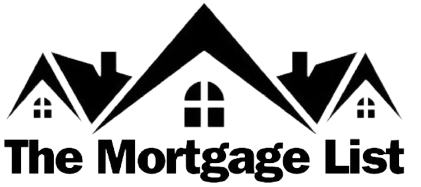Which Mortgage Is Best for Purchasing a Home in the USA?
Buying a house is a big life milestone, and getting the best financing is essential to making the process of becoming a homeowner easy and financially sustainable. There are several kinds of house loans accessible in the USA, each with unique characteristics and advantages. Making an educated choice may be aided by being aware of the distinctions between these loans and taking into account a number of different aspects.
Introduction to Home Loans
Mortgages, or house loans, are financial instruments intended to assist people in financing the purchase of a residence. Borrowers can obtain a loan from a lender and make monthly payments over time, usually spanning many years, as an alternative to paying the whole purchase price up front.

Mortgage Types Offered in the United States
Conventional Loans
Mortgage loans classified as conventional are not guaranteed or insured by the government. In comparison to loans guaranteed by the government, these loans usually have greater credit requirements and bigger down payments.
FHA Loans
First-time homebuyers like Federal Housing Administration (FHA) loans because of their relaxed credit score standards and minimal down payment requirements.The government insures FHA loans.
VA Loans
Veterans, active-duty military personnel, and surviving spouses may apply for VA loans. The Department of Veterans Affairs guarantees these loans, which frequently have low interest rates and no down payment requirements.
USDA Loans
The U.S. Department of Agriculture backs USDA loans, which are intended to assist low-to-moderate-income people in rural regions in becoming homeowners. These loans include competitive interest rates and choices for a $0 down payment.

Comparison of Different Home Loans
It’s crucial to evaluate the many home loan alternatives based on important criteria including interest rates, down payment requirements, credit score requirements, and mortgage insurance when choosing the best loan for buying a house in the USA.
Interest Rates
The total cost of a mortgage is mostly determined by interest rates. While adjustable-rate mortgages (ARMs) may have lower starting rates but are subject to change over time, fixed-rate mortgages typically provide consistent monthly payments.
Down Payment Requirements
The cash contribution paid up front toward the cost of the house purchase is known as the down payment. While FHA loans may only demand a 3.5% down payment, conventional loans often require a down payment of at least 3%. For qualified applicants, VA and USDA loans provide $0 down payment choices.
Credit Score Requirements
Lenders evaluate borrowers’ creditworthiness based on their credit ratings. Compared to government-backed loans, conventional loans sometimes have stricter credit score requirements. FHA loans are a good choice for people with less-than-perfect credit since they may be available to applicants with lower credit ratings.
Mortgage Insurance
An insurance coverage known as mortgage insurance shields lenders against loan defaults. If the down payment on a conventional loan is less than 20% of the purchase price of the property, private mortgage insurance, or PMI, may be required. VA and USDA loans have their own insurance schemes; FHA loans have upfront and yearly mortgage insurance costs.
Factors to Consider When Choosing a Home Loan
When choosing a house loan, borrowers should take into account their financial status, long-term objectives, and the state of the market in addition to the particulars of each loan type.
Financial Situation
To ascertain how much they can afford to borrow and repay each month, borrowers should evaluate their income, debt-to-income ratio, and general financial health.
Long-term Goals
Long-term homeownership objectives, such as the anticipated duration of residence and future financial investment intentions, should be taken into account.
Current Market Conditions
Borrowers may make an informed decision about whether to lock in a fixed-rate mortgage or take advantage of possibly lower beginning rates with an ARM by keeping an eye on market circumstances and interest rate trends.

Pros and Cons of Each Type of Home Loan
The benefits and drawbacks of each sort of house loan should be carefully considered in light of the needs and preferences of the person.
Tips for Selecting the Best Home Loan
Borrowers should shop around, compare offers from many lenders, and consult with reputable mortgage brokers or financial experts to guarantee the best possible result.
Conclusion
A number of elements, including as interest rates, down payment requirements, credit score requirements, and individual financial situations, must be carefully taken into account when selecting the best house loan for buying a property in the United States. Borrowers may make well-informed selections that support their aspirations of becoming homeowners by being aware of the distinctions among loan kinds and assessing their personal requirements.
FAQs
How much of a down payment is necessary to qualify for a conventional loan?
Typically, a conventional loan requires a minimum down payment of 3% of the purchase price of the property; however, better conditions may need larger down payments.
Do only first-time homeowners qualify for FHA loans?
No, both first-time and repeat homeowners who fulfill the requirements can apply for FHA loans.
What distinguishes VA loans from traditional loans?
In comparison to conventional loans, VA loans may have more flexible credit score criteria and provide $0 down payment choices. In addition, private mortgage insurance (PMI) is not needed for VA loans.
What is the USDA loan maximum income limit?
The highest income that may be obtained with USDA loans varies based on household size and geography. Borrowers seeking information on particular qualifying requirements should speak with a USDA agent or a lender.
I want to refinance my current mortgage, is that possible to get better terms?
Yes, homeowners who want to modify the length of their loan, cut their interest rate, or use the equity in their property for other purposes can refinance.
Read More:>
